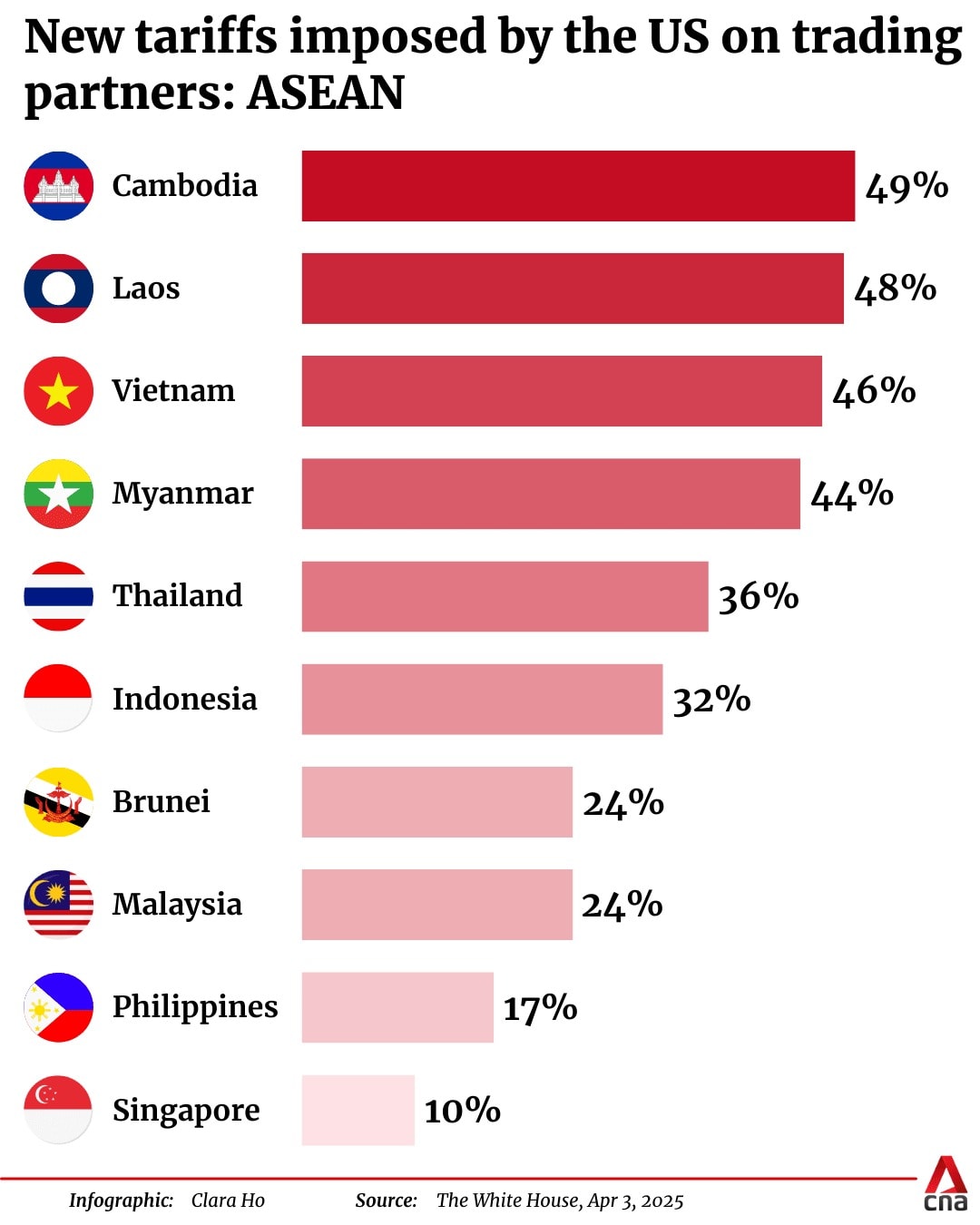SINGAPORE: Singapore must brace itself for more shocks to come, as the global calm and stability that once existed"will not return anytime soon", said Prime Minister Lawrence Wong in a YouTube video on Friday (Apr 4).
His comments came after the US on Wednesday imposed sweeping new tariffs on almost all its trading partners, sparking a raft of retaliatory moves by targeted countries.
"We cannot expect that the rules which protected small states will still hold," said Mr Wong."I am sharing this with you so that we can all be mentally prepared."
"So that we will not be caught off guard. Let us not be lulled into complacency. The risks are real. The stakes are high."
However, he assured that if Singapore stays resolute and united, it will continue to hold its own in what he described as a"troubled world" that is seeing a growing likelihood of a full-blown global trade war.
He added that Singapore needs to be clear-eyed about the dangers that are building up in the world, with global institutions getting weaker and international norms eroding.
This will result in more and more countries acting based on narrow self-interest, and using force or pressure to get their way in what he said is the harsh reality of the world today.
"We will stay vigilant. We will build up our capabilities. We will strengthen our network of partnerships with like-minded countries," he said.
"We are more ready than many other countries, with our reserves, our cohesion, and our resolve."
Mr Wong also noted that some people had previously questioned his assessment that the changing world will disadvantage small open economies like Singapore.
This latest move by the US leaves"no room for doubt". He said it marked a"seismic change" in the global order, one where rules-based globalisation and free trade is over, to turn into one that is"more arbitrary, protectionist, and dangerous".
For decades, the US had championed free trade and led efforts to build a multilateral trading system, anchored by clear rules and norms. It was one where countries could achieve win-win benefits through trade, he added.
This"WTO (World Trade Organization) system" brought unprecedented stability and prosperity to the world – and to the US itself.
"To be clear, the system is not perfect. Singapore, and many others, have long called for reform – to update the rules and to make the system better," he said.
"But what the US is doing now is not reform. It is abandoning the entire system it had created. Its new approach of reciprocal tariffs, country by country, is a complete rejection of the WTO framework."
Singapore is in the lowest base tier – with a tariff of 10 per cent – so the direct impact may be limited for the time being. But he said there are wider and more profound consequences if other countries follow suit, as that will spell trouble, especially for smaller countries like Singapore.
"We risk being squeezed out, marginalised and left behind," he said, adding that the last time the world experienced something like this was in the 1930s.
That was when trade wars escalated into armed conflict and eventually, WWII.
IMPACT ON SINGAPORE
His comments came on the back of US President Donald Trump on Wednesday unveiling a raft of punishing tariffs targeting countries around the world, in a move that risks sparking a ruinous trade war.
Some of the heaviest blows were reserved for what Trump called the"nations that treat us badly", including 34 per cent on goods from China, 20 per cent on key ally the European Union, 24 per cent on Japan and 26 per cent on India.
The 34 per cent tariff on Chinese imports is on top of the 20 per cent Trump previously imposed, bringing the total new levy to 54 per cent.

Vietnam was hit with 46 per cent. Thailand, Indonesia, Malaysia, Cambodia and Myanmar were given"reciprocal" tariffs ranging between 24 per cent and 49 per cent.
Even though Singapore was hit with the lowest level of tariffs, the impact will be significant, Singapore Deputy Prime Minister Gan Kim Yong said earlier on Thursday.
Mr Gan, who is also the trade and industry minister, said that Singapore is reassessing its economic forecast and"may need to make adjustments in time to come".
Warning that households and businesses have to"be prepared for rough waters", he added that the government will introduce more measures to help them if necessary.
Senior Minister Lee Hsien Loong also warned that Singapore's growth will be affected.
"Our growth will be hurt, though it is too early to tell by how much," he said in a Facebook post on Thursday.
bracing for higher costs in the near term as global supply chains are upended.
In the longer run, a bigger concern is the risk of a recession in the US and what that means for the global economy, they added.

